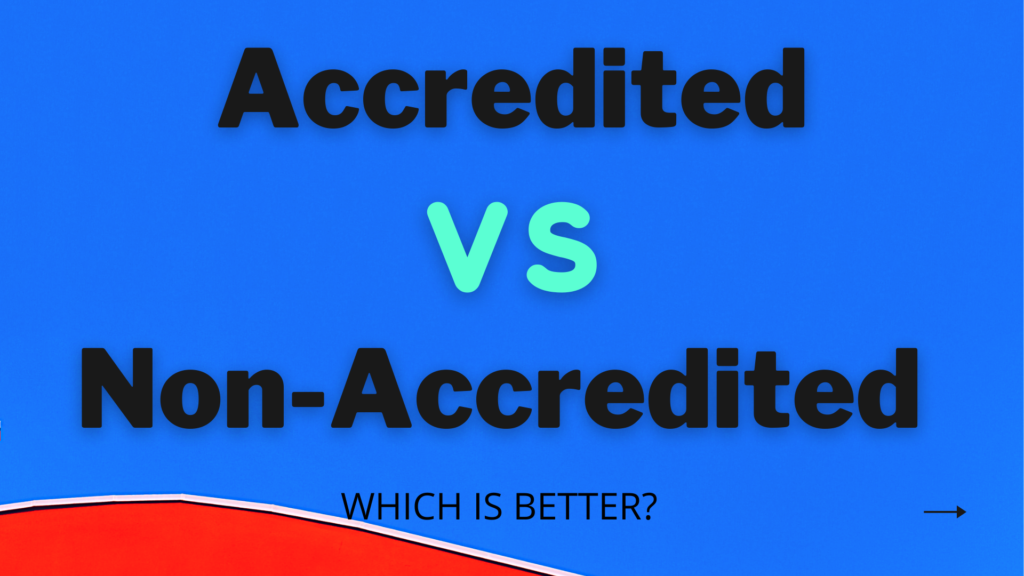Accreditation is a hot topic in the biomedical science community and student often wonders whether studying at an accredited university offers better job opportunities when compared to the alternative.
Often these alternative universities are high-quality research universities that lack IBMS accreditation but offer alternative accreditations from the society of biology or chemistry.
This can be very confusing as it may seem that the higher quality Russell group universities can’t get IBMS accreditation whereas the less competitive universities are offering this option, free of charge, seemingly improving your job prospects after you graduate.
This begs the question, is it worth going to a less competitive university for IBMS accreditation, or going to a top university this elusive title?

What is accreditation?
First, it’s important to tackle this idea of accreditation, so what is it anyway?
Accreditation is simply a title bestowed upon a university by an external body and indicates that the university degree follows the same guiding principles of the accredited body.
This title further states that any graduate of the degree has demonstrated competence in a given area as a result of passing all their tests and assessments.
It is a direct reflection of the university’s curriculum and ethos and allows for recognition by potential employers, recruiters, or admissions officers.
The accreditation body sets out strict guidelines that every accredited degree must follow in order to receive accreditation in the first place.
The confusion comes when some biomedical science degrees are accredited by the Royal Society of Biology, and others are accredited by the institute of biomedical science (IBMS).
Which is better and which one should you avoid?
Is going to an accredited biomedical science university necessary?
Going to an accredited biomedical science university isn’t at all necessary to have good job prospects after graduating.
Most students from IBMS accredited universities will actually never end up completing the IBMS portfolio needed to become a biomedical scientist.
The accreditation title is simply to inform you that if you wish to become a biomedical scientist, you will have less issues finding a laboratory to complete your portfolio at.
It also indicates that in the second year of your studies if you so wish, you can switch over to a healthcare science pathway where your main focus is working in a lab and completing your portfolio to become a registered biomedical scientist.
This is during your course as opposed to after.
In reality, only about 10 out of a class of 100 will end up studying on this pathway since it is relatively competitive to get onto, and requires a full internal application and interview to take place.
Also, most students simply aren’t interested in giving up their student experience to work in a lab more-or-less full time and only see their friends a few days a week.
If you manage to get onto this healthcare science pathway, you will continue to study alongside your regular biomedical science counterparts for 1 day a week, spending the rest of your time in lab placements and work experience.
You will graduate alongside the whole biomedical science cohort but in addition, you will also have a full portfolio, granted you passed every exam and practical, both at university and at your placement laboratory.
This will allow you to apply for jobs in the biomedical science sector, usually as a laboratory assistant on band 4 or 5 if you have more experience.
If, however, you were on the regular biomedical science pathway and didn’t want to complete a portfolio while at university, you may still choose to complete your IBMS portfolio via the NHS scientist program, after you graduate.
You will already have attended an accredited university which is one of the requirements of completing the portfolio after graduating. This is an 8-week program that you must pay for yourself, as opposed to the cost being included with tuition fees.
Can you still become a biomedical scientist after attending a university without accreditation?
Can you still become a biomedical scientist after attending a university without accreditation? Yes, as mentioned above you may still apply to the NHS scientist program and complete a portfolio even if you attended an institution that didn’t have accreditation.
They only question would be, why would you?
If you have attended a university without accreditation, it is likely to be a top Russell Group research university.
There are so many opportunities to take advantage of especially if your first degree is from a research-intensive institution.
Postgraduate study should be your first course of action, however, it shouldn’t be seen as a necessary evil, but rather an opportunity to further enhance your skills and therefore your employability.
Medicine is always an option after studying biomedical science. If you studied at a top university, it is likely that there is an associated medical school which will accept an internal application to study medicine once you graduate.
If you choose to do postgraduate study at your undergraduate institution, you will incur a massive discount that will be very useful paying for tuition fees and living cost!
Don’t limit yourself to being a biomedical scientist, there are many options to explore.
Summary
It’s important to understand that whichever university you go to, a first degree is just that. It’s simple to prepare you for life ahead and shouldn’t be seen as an all-important decision that will determine your entire life.
In the grand scheme of things, studying at an accredited university doesn’t matter too much, it’s what you choose to do with your undergraduate degree at the end of the day.
As long as you are scoring above a 2:1, you can study at any other institution postgraduate, and study any related course that interest you.
Good luck, aim high.

![[MacOS Error] – Compressor does not support running in a macos virtual machine](https://cdn-0.ghoopi.com/wp-content/uploads/2023/09/img_6688-150x150.jpg)










